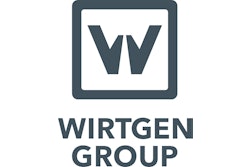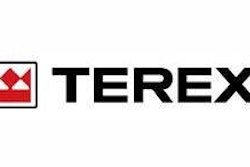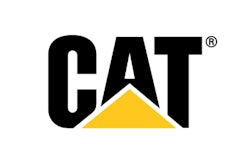Difficulty obtaining financing for new equipment is a top concern for many rental businesses today. Lending institutions are more conservative than ever, while individual businesses have seen their credit scores suffer as they've struggled to make ends meet with a sharp decline in revenues.
Financial analysts repeatedly tell consumers that in order for our economy to turn itself around, individuals and businesses must provide the necessary stimulus by spending money. Ironically, this is tough to do without the help of loans and credit. The good news is there is much within your control when applying for financing, and if you know what the lenders are looking for, you can improve your chances of getting funds.
The road to recovery (is slow)
Experts say 2010 is predicted to be better than 2009, but the recovery is slow, making it difficult to obtain credit and financing in a lot of cases, particularly for rental companies.
"Rental is considered construction related by most financial institutions," explains Harry Schneider, president of Allied Financial Solutions. "There is a lot of caution taken today when lending to the construction industry. Most lenders are requiring financial disclosure even on smaller transactions to secure the best rate."
Indicators suggest there is currently some mild improvement in terms of financing availability, but it's nowhere near the level it once was.
"While the credit markets are showing signs of thawing, they remain tight and we are not likely to return to the days of easy credit that we saw before August 2008," says George Macia, program manager, Americas, Doosan Infracore Financial Solutions. "Consequently, manufacturers have had to make changes in the way we manage the financing business so that we can continue to offer financing solutions to customers."
Mike Arness, president of ClearView Financial Inc., says there are two factors contributing to the scarcity of financing options. "One is that banks are more conservative and credit windows are shrinking, meaning lenders are more strict about who they will finance," he says. "Second, individual credit scores are dropping. This is because the model banks use to score credit has been adjusted. It's brutal - but it's through no fault of the individual."
Arness adds that another reason credit scores have dropped is because individuals have been resorting to credit cards more often to make ends meet, which has reduced their available credit, creating a negative impact on their credit score.
"Keep your credit card balances under 50 percent of your available credit," he advises, noting that it's more advantagous to have numerous open lines of credit with low balances than it is to have one line of credit that is almost maxed out.
"Your ability to go too far into credit is not a detriment to your credit score," Arness says. "Banks like to see that you have a backup if something happens."
Communication is key
No one has been immune to the economic downturn, but some have fared better than others. If you had good credit going into the recession, and you've managed to maintain relatively steady cash flow, chances are good your business has weathered the storm pretty well. On the other hand, if your credit was shaky in the first place and your revenue has dropped significantly during the recession, you might be in a precarious position when applying for equipment financing.
"Like the majority of rental businesses today, we've seen some pretty tough sledding over the last 18 months," says Rick Bruflat, marketing segmentation manager, Construction & Forestry, John Deere Credit. "In lending, character and loyalty are big issues. We understand that most, if not all customers have experienced some cash flow issues. The customers that have been proactive and forthright in asking for help, and have demonstrated good operation, will find some benefits to that behavior."
Experts agree that one of the most important things you can do to maintain or improve your credit is communicate with your lenders.
"Coming out of the bottom of the trough in this most recent cycle, many rental companies may have weak spots in their credit profile," Bruflat says. "Providing information that helps us understand who that rental company is can really increase their chances of not only gaining credit approval, but also getting the terms they desire to run their business. Information such as telling us about their rental niche, who comprises their customer base and even demonstrating future pro-forma revenue streams are all pieces of the puzzle that work in the customer's favor."
Some rental companies are reluctant to be forthcoming about the state of their finances because they fear it will hurt their chances of getting funding.
"Talk to your accountant or someone you can trust," advises Schneider. "You may find that your situation is not unique. You may find that this person has helped others like you. Don't let your personal pride stand in your way. Asking for help is the most human thing to do."
Mike Farley, managing partner at EquipOne, a company specializing in helping rental companies rebuild or restructure their financial and operational positions, points out that it's in everyone's best interest when businesses succeed.
"Lending institutions want their customers to stay in business because they are essential to the business growth and stability of their own companies," he says. "Banks and other financial resources are, we have found, more than willing to assist their clients through these difficult times when business plans can show a clear path to solutions that will benefit both parties."
Be proactive
It's never a good idea to bury your head in the sand when it comes to your personal or company finances. Being assertive and proactive can pay big dividends.
"The economic conditions of the past two years have taken their toll on business and personal credit scores. In many cases, it has also affected the company's balance sheet," Schneider says. "Those who were proactive held this decline to a minimum. Those who were not now have a challenging task ahead of them. It's time to start rebuilding all of these elements of your credit. It starts with a reality check. It moves forward with a plan. I suggest everyone take time for both immediately."
Arness adds that if you're having financial difficulty, it's always better to bring it to light. "Be proactive, talk to your lenders," he says. "Don't hide, or we'll send the dogs out. When you communicate with us, we want to work with you."
Factors affecting creditworthiness
First and foremost, it's important to maintain the integrity of your business and personal credit score, Schneider says. "Watch expenses and maintain a solid balance sheet. If you have some issues in any of these areas, work with professionals to help strengthen them."
If you can demonstrate to your lenders that you have revenue coming in, and that you have reason to believe it will continue, your likelihood of obtaining financing greatly improves.
"Cash flow, debt serviceability, profitability, payment history, experience in the industry and time in business are big factors toward credit analysis," says Bruflat at Deere.
Macia at Doosan agrees. "Payment history is very important as is time in business. Other important indicators are profitability and debt-to-worth ratios. Cash flow is key, and to some lenders, is the most important variable."
"Pay your bills on time," adds Arness at ClearView. "We as lenders are basically historians. If you show us a poor payment history, we can only assume the future will be the same."
It helps to have a story ready, Macia says. You must be able to explain your situation. "Present a business case outlining the actions that have been taken during the downturn to keep the enterprise healthy and viable," he says. "Forward projections are helpful as is information relative to contracts currently in place."
What services are available?
One thing is for certain in troubled economic times: Every situation is unique, and so must be the solutions.
"Customization to a customer's needs is key," says Bruflat at Deere. "One of the best relief tools we can provide is allowing a customer to pre-install skip periods in his payment stream. This helps with cash flow during slow times in his business cycle. Also, as we work with our parent company, specialized repayment terms have helped some rental companies down a path of recovery."
Arness notes that lenders can be flexible if the terms are agreeable. "We can take different properties as collateral. We have expanded our services dramatically to accommodate the current economic climate," he says.
In addition, Arness says ClearView is also doing merchant advances. "Let's say the rental yard typically does $8,000 in credit card business in a month, and it's cleared through the bank. We can take the history of credit card transactions and, based on the history, we can loan money based on that. It doesn't require a credit score; the applicant is basically borrowing against future receivables."
Schneider at Allied encourages rental companies to work with brokers and lenders that know the rental industry and guard against fly-by-night debt consolidators. "I am not a fan of credit counseling services. My advice is to use someone or a company that you know," he says. "If one of my customers needs assistance or temporary relief, I expect them to contact me directly. We built the relationship together and we are the only ones who can come to a mutually beneficial solution."
He continues, "There are also funding sources that take high risk. I don't use them, but they are an alternative if all else fails. Basically, you have to rebuild your credit and financial statements to a point where traditional lenders will feel comfortable lending to you."
Looking into the crystal ball
While there is a still a long road toward recovery, experts express some cautious optimism for the future.
"We certainly hope and plan for better times ahead," says Bruflat. "Some economic indicators are starting to line up correctly while some are still lagging. It's tough to make predictions because five years ago, no one would have expected the tough cycle we're in right now."
Schneider suggests that rental companies resolve themselves to the slow and steady approach. "We are into a slow recovery. It will remain slow for a rather long period of time," he says. "But a slow recovery might be just what the doctor ordered. Moving too quickly could cause the economy to dip again. Any sizeable dip would destry momentum and lessen an already low consumer confidence level. We must ready ourselves to take smaller steps at first and then larger steps as we gain momentum. But whatever we do, we cannot sit still. We must trust our own abilities and invest in ourselves and our futures."
No matter how quickly the economy recovers, it's unlikely that credit and financing will return to pre-recession levels. "It will never go back to '07 levels," Arness says. "We've all learned a lot from our mistakes."
Macia at Doosan says he sees continued improvement in the credit market this year and into the next five. "Portfolio performance is improving and so are approval rates throughout the industry," he says. "Lenders are out looking for business, although they will require higher spreads and better economic returns."
As long as "we keep trading dollars," Arness says the economy will continue on its path toward recovery. On the bright side, the recession has weeded out the weakest players.
"Default rates have been higher than ever since the Depression," he says. "They're up to 10 percent now; they're usually 2 percent. But they're starting to drop off, because the weaker companies are gone. We've seen the bottom of the hole and now we have to rebuild."
He continues, "After this year, I think we're going to see real improvements - 2007 was an unsustainable high and 2009 was an unsustainable low. We'll come back to somewhere in the middle."
Debt consolidation might be an option
For some financially stressed rental companies, the only option to stay in business is debt restructuring. "Our clients face critical financial issues. We perform an exhaustive review and evaluation of their financial portfolio, develop new refinancing solutions, and renegotiate new terms with their financial resources," says Mike Farley, managing partner of EquipOne, a company that specializes in debt restructuring for the rental industry.
With a degree in financial banking, Farley has a long history with the rental industry. After growing up in and around construction rental, Farley worked for a small outfit in New Orleans, spent eight years in outside sales with Prime Equipment, then went on to work for U.S. Rentals, United Rentals and then NationsRent as vice president of sales. Following his service as president and CEO of Brambles Equipment, Farley was the first president and CEO of the Volvo Construction Equipment Rents franchise organization. In 2004, Farley formed EquipOne.
Farley's firm establishment in and long-standing engagement with the rental industry gives him a unique insight into what his clients need. A complete due diligence evaluation, review and audit of the client's entire operation is performed by his company. From this, a new and workable debt restructuring and business operational model for its business is created. A comprehensive best practices program that includes effective fleet utilization and management to support the new financial system is also developed. The client is then taken by EquipOne through the entire refinancing negotiation with its lending resources, who are also seeking new solutions to help the client stay in business and for their own security and profitability.
"The business model that is developed is presented to the financial institutions in a format that meets all of their requirements. It is a working model, and at the end of the process, it is owned by the client for the operation of the client's business. It is an invaluable asset," adds Farley.
Farley stresses to prospective clients that restructuring is not a negative action, but instead is a proactive measure making the rental company healthier, more efficient and more attractive to lenders.



















